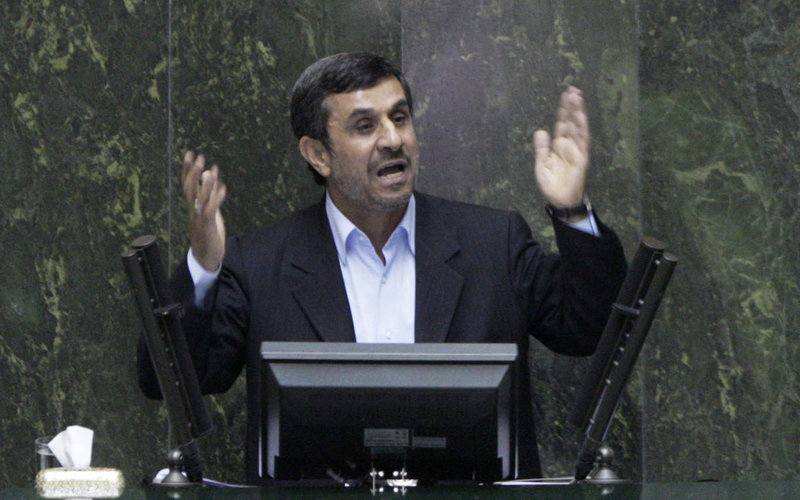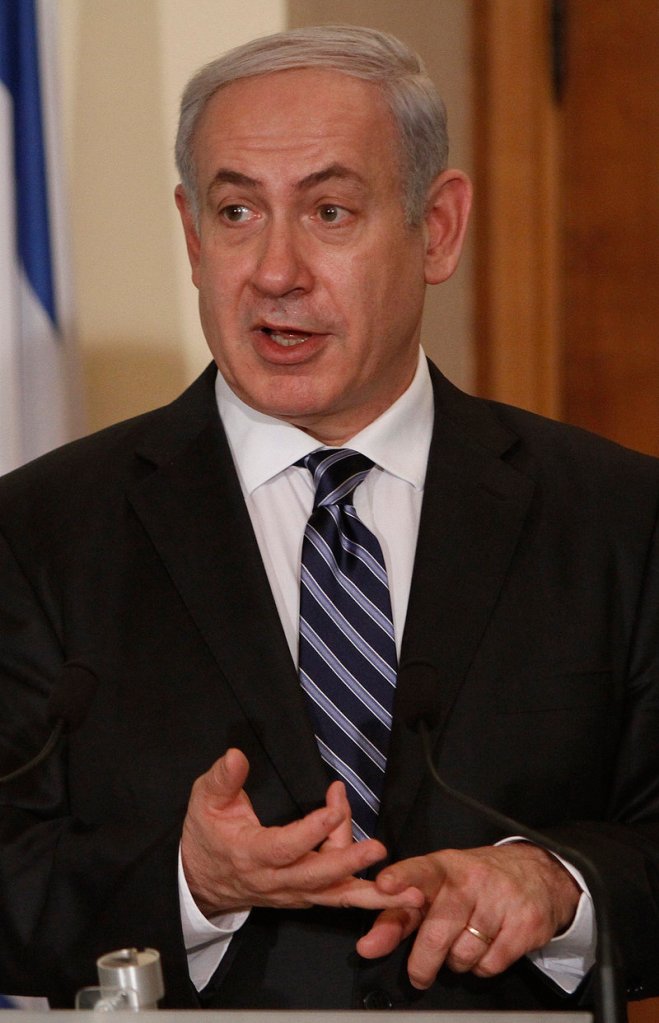JERUSALEM – Despite saber-rattling from Jerusalem, Israeli officials now agree with the U.S. assessment that Tehran has not yet decided on the actual construction of a nuclear bomb, according to senior Israeli government and defense figures.
Even so, there is great concern in Israel about leaving Iran “on the cusp” of a bomb — explaining why Israel continues to hint at a military attack on Iran’s nuclear installations before it moves enough of them underground to protect them from Israel’s bombs.
Israel’s leaders have been charging in no uncertain terms for years that Iran is trying to build nuclear weapons.
Though officials say they accept the more nuanced American view, they warn that it is just a matter of semantics, because an Iran on the verge of being able to build a bomb would still be a danger.
The United States is playing up its assessment that Iran has not made its final decision in a public campaign to persuade Israel to call off any attack plan and allow the increasingly harsh sanctions against Iran time to persuade Tehran to back down.
The concern — which is widely shared in Israel as part of a complex calculation — is of an Iranian retaliation that might spark regional conflict and send oil prices soaring, at a time when the world economy is already struggling and U.S. presidential elections loom.
Also in the equation are concerns about the ability of the Israeli home front to withstand a sustained barrage of Iranian missiles fired in retaliation.
Iranian surrogates Hezbollah in Lebanon and Hamas in the Gaza Strip could also bombard Israel with thousands of rockets, and U.S. troops in the Gulf region could also become targets.
Several senior Israeli officials who spoke in recent days to The Associated Press said Israel has come around to the U.S. view that no final decision to build a bomb has been made by Iran. The officials, who are privy to intelligence and to the discussion about the Iranian program, said this is the prevailing view in the intelligence community, but there are also questions about whether Tehran might be hiding specific bomb-making operations.
The concern, they said, is about allowing the Iranian program to reach the point where there is enough enriched weapons grade material that a bomb could quickly be assembled, within a year.
Israeli Prime Minister Benjamin Netanyahu said Sunday, “Iran, whose leader foments terrorism and violence around the globe and calls for our destruction this regime must never be allowed to have nuclear weapons.”
Israel officials have said that with Iran moving its installations underground, Israel’s level of bunker-busting capability leaves it with a window of no more than several months to act effectively.
The United States, with more powerful bombs, would have a much longer period — but leaders here are loathe to be entirely dependent on U.S. determination on the issue.
The suspicion in Israel is that the Iranians have held off on a decision in order to deny Israel — and other countries — the pretext for an attack, officials said, noting that to a certain extent the matter is semantic and therefore secondary.
All the officials spoke on condition of anonymity because the subject is deemed too delicate to be discussed on the record, and the government has ordered silence.
Israel views Iran as a threat to its survival and, like the West, sees Tehran’s ramped-up enrichment of uranium, a key element of bomb making, as undercutting its claims that its nuclear program is purely civilian.
The U.N. nuclear agency cited its concerns about Iran’s ultimate designs in reports, but notes its inspectors have found no direct evidence that Iran is moving toward an atomic weapon.
Netanyahu ratcheted up the tough talk this month, emphasizing during a White House visit and in a high-profile speech at home that Israel was prepared to act alone if necessary, even over U.S. objections.
In advance of Netanyahu’s White House visit and during a speech to a powerful pro-Israel lobby, President Barack Obama took an increasingly assertive tone about U.S. refusal to tolerate a nuclear Iran and willingness to block that militarily.
Still, he tempered this tone by saying there was “too much loose talk of war” and emphasized his preference for diplomacy and sanctions. Secretary of State Hillary Rodham Clinton reiterated shortly before Netanyahu arrived in Washington the prevailing U.S. view that Tehran has not decided to produce weapons.
Iran reported in February that it possesses up to 100 kilograms of uranium enriched to 20 percent, which would be enough for four bombs if further processed. Uranium must be enriched to 90 percent to be military grade.
Israeli intelligence officials, like other intelligence agencies worldwide, estimate that once a decision to build a bomb is reached, it would take months to upgrade the enrichment and months more to build a crude bomb — in all, a year to 18 months.
Then, to fit a bomb to a Shahab-3 missile capable of striking Israel would take Iran two years, Israeli defense officials say.
Israeli officials who favor a strike do not want Iran even to reach the point where work on a bomb could begin.
Israel itself is widely believe to have an arsenal of nuclear weapons, though it has a policy of neither confirming nor denying that.
Israel has been warning of an Iranian nuclear threat since the 1990s and has been working on a possible military strike for years.
Leaders here have welcomed the increased sanctions on Iranian oil exports and banks, but they remain skeptical of an Iranian retreat, especially because Russia and China refuse to join the effort.
Send questions/comments to the editors.




Success. Please wait for the page to reload. If the page does not reload within 5 seconds, please refresh the page.
Enter your email and password to access comments.
Hi, to comment on stories you must . This profile is in addition to your subscription and website login.
Already have a commenting profile? .
Invalid username/password.
Please check your email to confirm and complete your registration.
Only subscribers are eligible to post comments. Please subscribe or login first for digital access. Here’s why.
Use the form below to reset your password. When you've submitted your account email, we will send an email with a reset code.